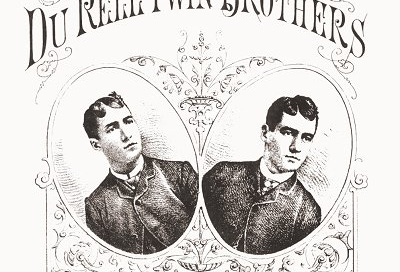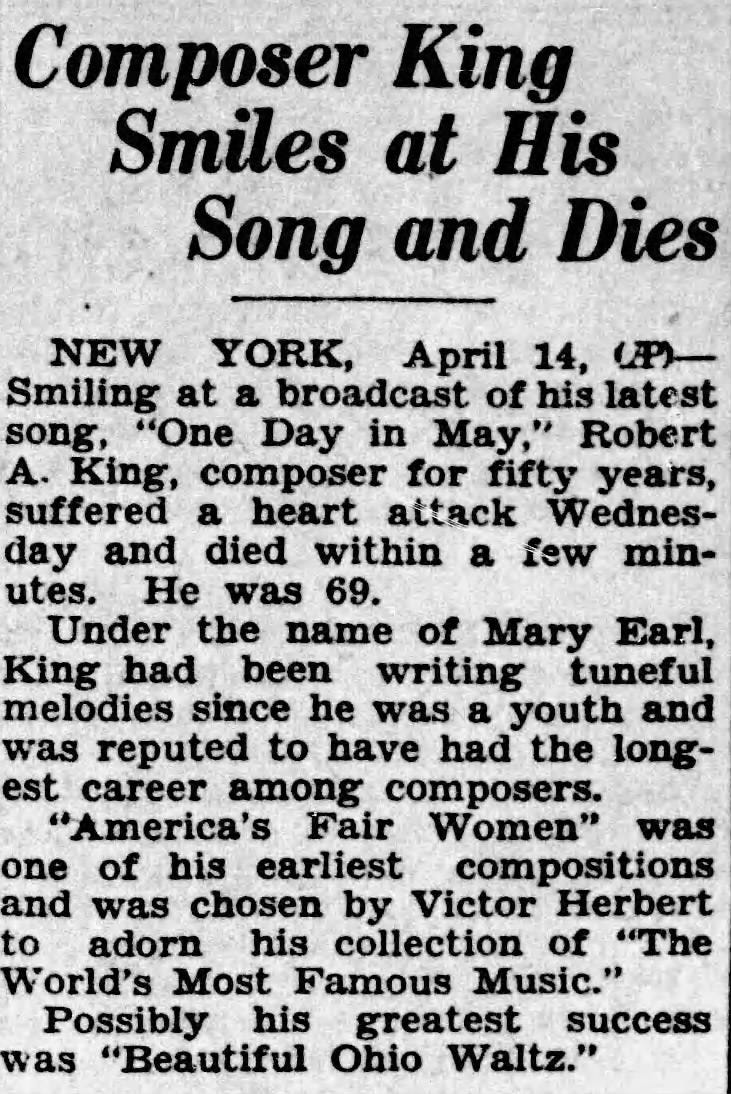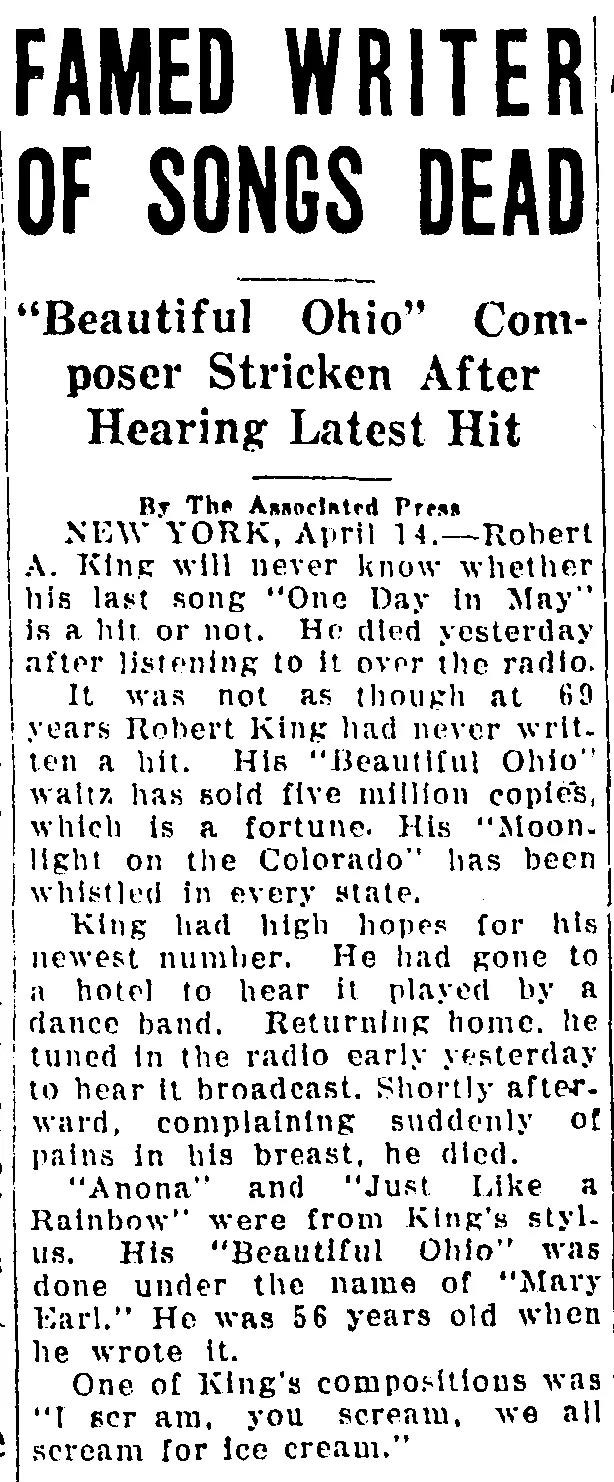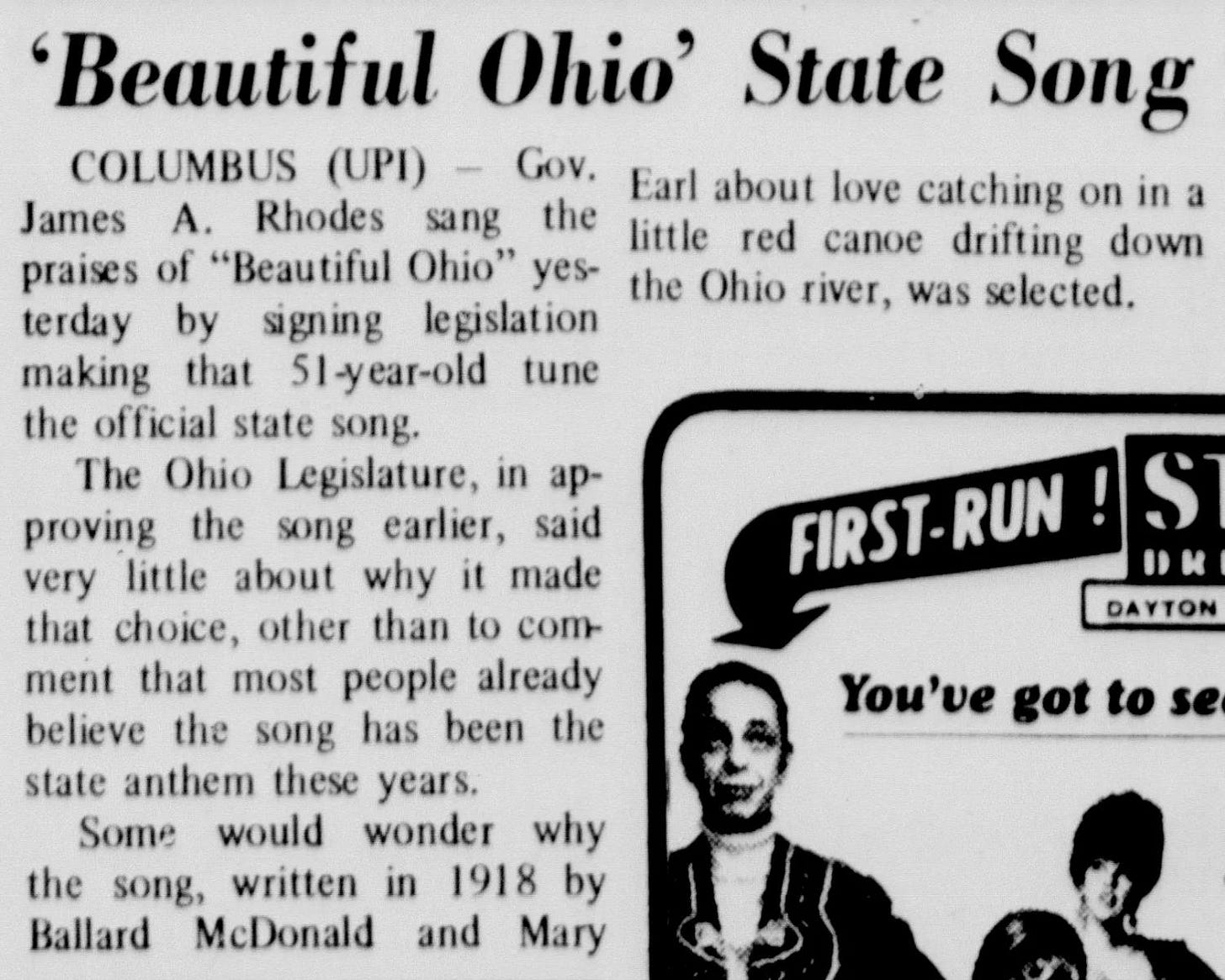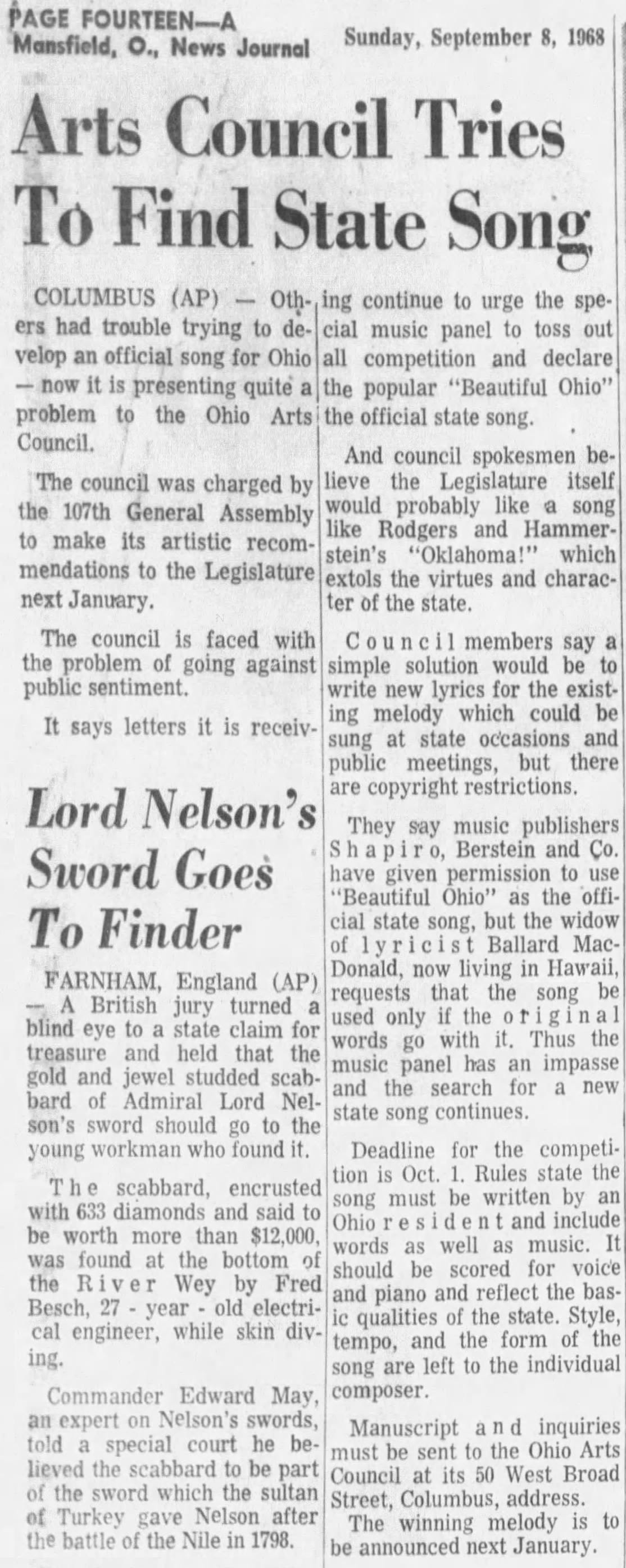'The Fountain in the Park'
NASA clip, fictitious credits, Robert A. King's (posthumous) accomplishments
Last week, I watched two different experimental documentaries by two different filmmakers from two different countries made fifteen years apart: Double Take (2009) by Belgian filmmaker Johan Grimonprez and It’s Not Me (2024) by French filmmaker Leos Carax. And, for different reasons, each film includes a clip of NASA Astronauts Harrison Schmitt and Eugene Cernan singing a few bars of “The Fountain in the Park” aka “While Strolling Through the Park One Day” while skipping on the Moon during the Apollo 17 mission.
Schmitt changes the line and sings, “I was strolling on the Moon one day...” then Cernan joins him with the original “in the merry month of May” while Schmitt changes the month to “December,” which was the actual date at the time. Schmitt continues to sing and hums the tune a little more.
The song was roughly 92 years old at the time.
Bridging the gap between Elegant Eighties songs and the Gay Nineties, “The Fountain in the Park,” published by Willis Woodward & Co. in 1884, was considered a forerunner in the Golden Age of the Ballad. Its writing is credited to Ed Haley and Robert A. Keiser. The Du Rell Twin Brothers, a song-and-dance team, introduced the song possibly as early as 1880. It’s considered the “national anthem of soft shoe dancers.”
The song has been covered by Bing Crosby and many-a barbershop quartet, and featured in numerous films, animated projects, theatrical productions and television shows.
It’s considered a classic and the credited songwriters… don’t exist.
That is, Ed Haley may very well be completely fictitious, and Robert A. Keiser was likely a pseudonym for Robert A. King. Or it’s possible he had changed his name from Keiser to King and would sometimes use the former as a nom de plume.
Robert Adolph “Bobo” King was born in 1862 and started working for music publisher Charles Ditson & Co at age 16. He was a pianist as well and later performed in vaudeville.
King went on to work for music publishers Leo Feist Inc. and Shapiro, Bernstein, & Company.
For some reason, he would often write under pseudonyms like Robert A. Keiser, Mary Earl, and Betty Chapin. Because of this, we may never know just how many songs he has written, and it was many, in a nearly fifty-year career.
The Discography of American Historical Recordings currently has King credited on over 335 records.
He died at his home in Manhattan on 143 West Ninety-Sixth St. on April 13, 1932, after staying up to listen to his latest song, “One Day in May,” on the radio. His obituary ran the next day, April 14, the twentieth anniversary of the sinking of the Titanic.
“Smiling at a broadcast of his latest song, “One Day in May,” Robert A. King, composer for fifty years, suffered a heart attack Wednesday and died within a few minutes.”
Another obituary took a different approach to reporting his death, saying, “King will never know whether his last song ‘One Day in May’ is a hit or not.”
That particular obit also mentions that one of King’s many songs is the popular “I Scream, You Scream, We All Scream for Ice Cream” (1927). He shares credit to that song with Howard Johnson and Billy Moll.
Johnson’s credits include “Ireland Must Be Heaven for My Mother Came from There,” “What Do We Do on a Dew Dew Dewy Day,” “When the Moon Comes Over the Mountain,” “Bring Back My Daddy to Me,” “Love Me or Leave Me Alone,” and “Am I Wasting My Time on You?” He was inducted into the Songwriters Hall of Fame in 1970.
On July 16, 1969, thirty-seven years after King’s death, then-Ohio Governor James A. Rhodes signed legislation naming King’s 1918 composition “Beautiful Ohio” as the official state song.
King is credited under one of his pseudonyms Mary Earl and the song, a waltz, was first released as a piano instrumental. The melody is partly based on "Song of India" by Rimsky-Korsakov and “Beautiful Dreamer” by Stephen Foster, the latter whose “My Old Kentucky Home” became Kentucky’s state song in 1928. Foster was inducted in the Songwriters Hall of Fame in 1970.
Ballard MacDonald, who would later write English lyrics for “The Parade of the Wooden Soldiers” and co-write the 1910 smash “Play That Barber-Shop Chord,” penned the lyrics for “Beautiful Ohio” about two parted lovers “drifting with the current down a moonlit stream.”
King wrote this song while working for Shapiro, Bernstein, & Company where his contract required him to compose one song each week. He was a salaried employee and the songs he wrote became exclusive property of the firm. The song sold more than five million copies and King was not legally entitled to royalties, though the firm paid King a $60,000 bonus for the song.
According to an article in the Fairborn Daily Herald:
“The Ohio Legislature, in approving the song earlier, said very little about why it made that choice, other than to comment that most people already believe the song has been the state anthem these years.”
Despite that quote, the song wasn’t necessarily the automatic choice. The Ohio Arts Council was tasked months earlier to make a recommendation and the public made it clear they wanted “Beautiful Ohio,” but the lyrics made it more of a love song rather than one “which extols the virtues and character of the state” à la Rodgers and Hammerstein’s “Oklahoma!”
The lyrics were finally altered in 1989 by Youngstown, Ohio, attorney Wilbert McBride.
The song is also sung by Jeanette MacDonald (no relation to Ballard, presumably) in the 1942 film Cairo, directed by W.S. Van Dyke (The Thin Man).
Ballard MacDonald was inducted into the Songwriters Hall of Fame in 1970, the same year as Stephen Foster, Howard Johnson, and Gus Kahn (“I’ll See You in My Dreams,” “It Had to Be You,” and “Makin’ Whoopee”), who collaborated with King on “I Need Some Pettin’” (1924).
To this day, King has not been inducted into the Songwriters Hall of Fame. Maybe it was all the pseudonyms—songs written by fictions and ghosts.
But perhaps King doesn’t need the Songwriters Hall of Fame.
Four days after the “Beautiful Ohio” news story was published, the first astronauts landed on the moon.
Forty years after his death and three years after one of his compositions became a state song, during the eleventh and final NASA Apollo mission in December 1972, “The Fountain in the Park,” another composition by King, writer of “My Moonbeam Babe” (1902) and “Moonlight on the Colorado” (1930), was sung on the actual moon.


